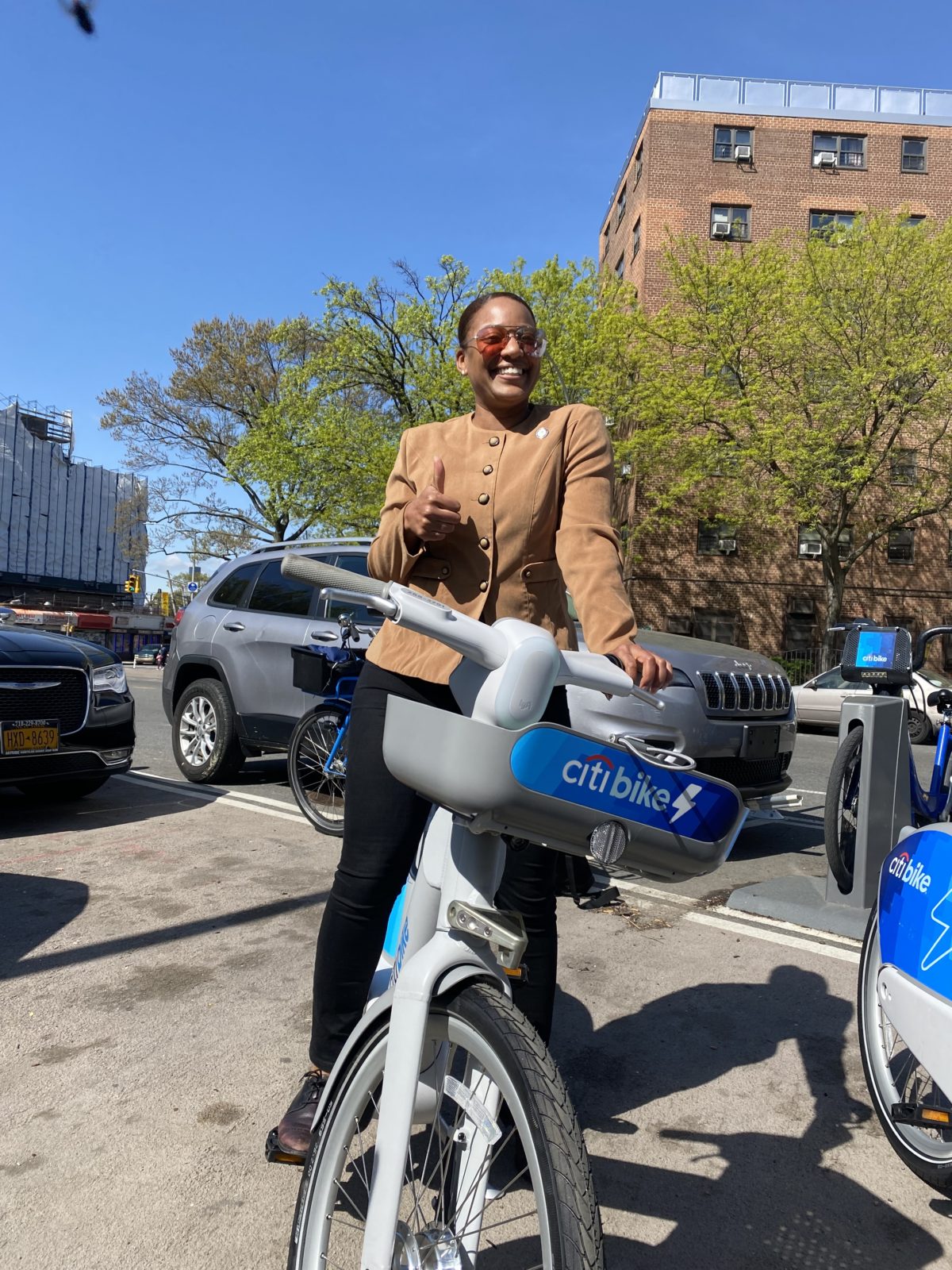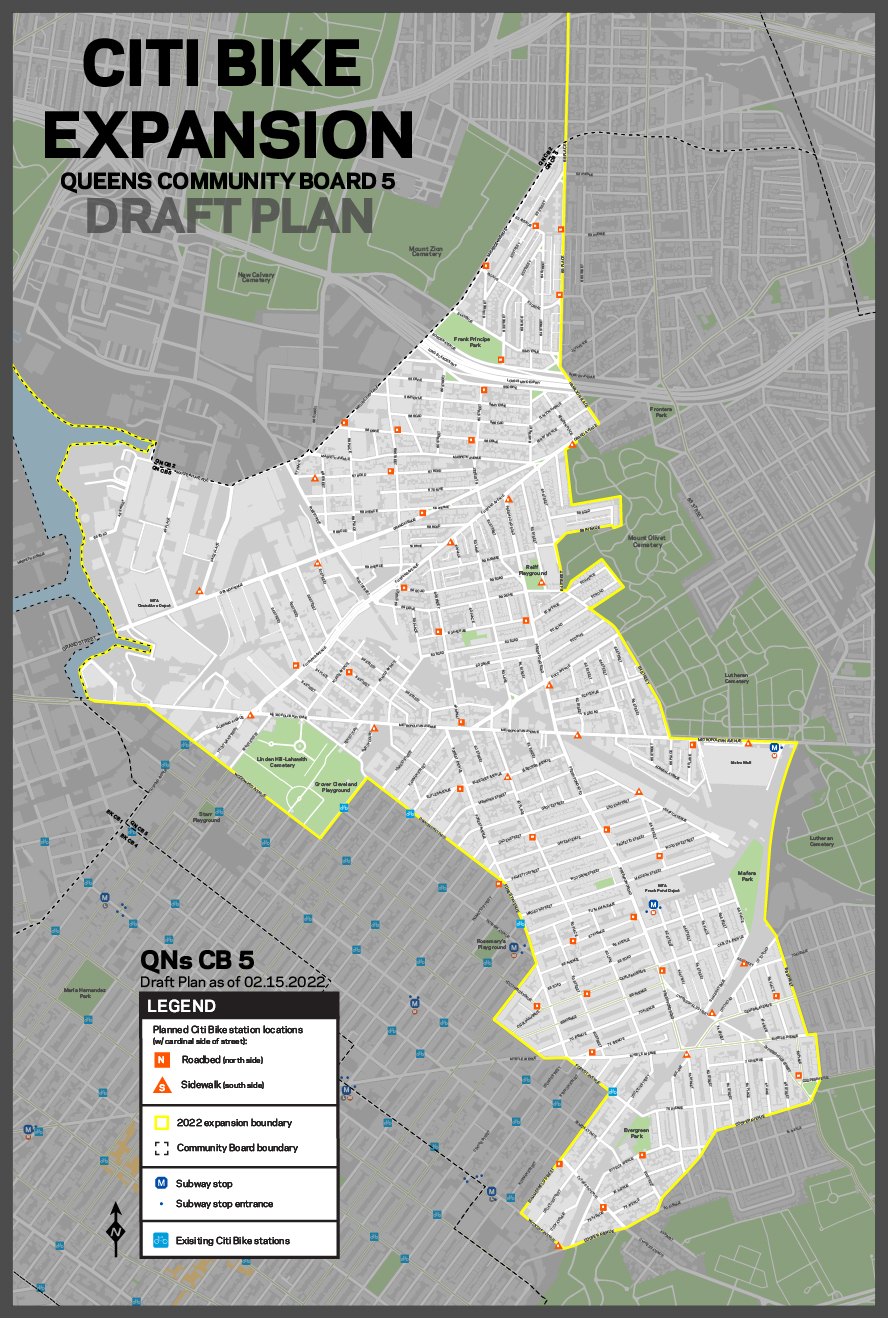New e-bikes added to Citi Bike’s fleet debut in Astoria
Jason Subratie said he could barely sleep the night before meeting the new upgraded e-bike that he would be using as his primary mode of transportation around the city.
 The young Manhattan-based entrepreneur says he discovered Citi Bike’s fleet of e-bikes last summer and has been riding ever since.
The young Manhattan-based entrepreneur says he discovered Citi Bike’s fleet of e-bikes last summer and has been riding ever since.
From delivering food orders to earn money, to visiting family members in Queens and Brooklyn, Subratie has even come up with a slogan for the bike-share company owned by Lyft.
“Why walk when you could use a Citi Bike?” Subratie said with a laugh. “I literally don’t believe in walking anymore, unless it’s out of the network. And I stay pretty much in the network.”
Subratie biked to Astoria last week to help welcome the new and improved line of e-bikes being added to Citi Bike’s fleet, and was one of the first New Yorkers to take the new model out for a ride.
Standing in the shadows of Astoria Houses, the debut of the new e-bikes came with celebration from community leaders and Citi Bike officials, who also noted the reduced fare program for residents of New York City Housing Authority.
Bishop Mitchell Taylor, CEO and founder of Astoria-based nonprofit Urban Upbound, led the collective remarks with some reflection on the place he’s called home for his entire life.
“The transportation burden on this community was quite great,” Taylor said. “So, to have us here today offering a transportation alternative is really historic.”
 Laura Fox, the general manager of Citi Bike, outlined some of the new features of the revamped e-bikes, which include a longer-lasting battery life up to 60 miles and a reflective-paint that is highly-visible at night.
Laura Fox, the general manager of Citi Bike, outlined some of the new features of the revamped e-bikes, which include a longer-lasting battery life up to 60 miles and a reflective-paint that is highly-visible at night.
“When we thought about the design of the new bike, we tried to simplify all the features, give it double the battery length, make a larger motor so you can get up those hills a little bit faster and easier, and really create a great, simple experience,” Fox said.
The nation’s largest bike-share network was purchased by Lyft in 2018, and now has over 1,500 docking stations and 25,000 bikes across New York City and Jersey City.
The partnership of Citi Bike and Healthfirst, New York’s largest non-profit health insurer, will offer $5 monthly memberships for NYCHA residents and SNAP recipients, with e-bike fares starting at $.05 cents a minute under the reduced fare program.
As someone who was born and raised in multiple NYCHA developments, Migel Santino, vice president of Healthfirst, says he understands the challenges that many NYCHA residents face.
“Those challenges stem from unequal access to resources, which makes life more difficult,” Santino said. “I will say that it is always important to have a program like this but it is particularly important as we are still working our way through the pandemic.”
As the new e-bikes hit the streets for their inaugural rides, Subratie was still elated with joy to be one of the first New Yorkers to ride the newest addition to Citi Bike’s lineup.
“I ride e-bikes all day, everyday,” he said. “I appreciate the upgrade.”






